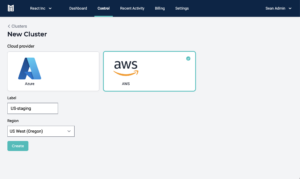It’s no secret that entrepreneurship is a game of chance tempered by skill, attitude and thought. We are all looking for answers on how best to respond to the uncertainty in the markets we operate in. At the same time, it’s also well-understood that everyone has opinions they love to deliver; there’s no shortage of advice for a Founder to take in, nor conflicting, contradictory counsel between them.
So it’s definitely refreshing when the questions and the facts and statements converge and make sense. I recently had the opportunity to witness this firsthand in the business we are in at MedStack. A narrative coalesced across three separate events: A live chat with the current student cohort of MaRS’ E101 program, a panel discussion at Brainstation in Toronto on digital health innovation, and an industry discussion on implementing digital solutions at Ontario hospitals hosted by our friends at the Health Innovation Hub. Here’s how they stitched together:
MaRS Discovery District in Toronto’s free online course, Entrepreneurship 101, provides foundational frameworks and resources to aspiring entrepreneurs around the world. Cohorts number in the thousands and I’m honoured to have been asked to contribute content and mentorship to this program. I participated in an Ask-Me-Anything type session last week and while the focus wasn’t exclusively in digital health, some of the questions and interest skewed that way. The theme of the questioning was around early-stage product research, how one talks to early customers, how one defines the different kinds of MVPs and what customer expectations should be for them. We discussed the role of Early Adopter interviews and how it’s critical in the early days to understand the workflow, decision-making and integration processes within the customers so that the product experience may be optimized accordingly.
We dove more into this at Brainstation Toronto’s panel discussion event on digital health, which I was pleased to moderate. Four startups with contrasting healthcare focuses were represented, from telemedicine to medical image management to decision support and machine learning algorithm development. The entrepreneurs discussed their experiences developing their products and markets and in dealing with ongoing expectations as well as the sometimes contrasting view of investors. Their consensus? Focus primarily on the workflow of your customer and how you can evolve it for the better. Avoid falling prey to hype or expending effort just to capture buzzwords. Whether you’re looking at how patients receive care or how doctors manage their tasks, an ever-present lens on workflow ensures the right questions are asked and the right product is built.
This approach also delivers a product easier to sell. It comes together when you bring in the perspective on product adoption by the customers themselves, as was discussed in the Health Innovation Hub’s recent panel discussion on Implementing Digital Solutions at Ontario Hospitals. Four major hospitals in the area were represented, and though the emphasis of each panelist was a little different, they all delivered the same counsel: Startups selling into healthcare need to do a better job of understanding how the tasks they’re innovating on are accomplished today, in what order and by whom, so they can explain the before and after states to those stakeholders in the selling process. In addition, their success is most assured if they also plan for and drive the adoption process according to the customer’s practices, including how trials are authorized and commercialization is funded and paid for.
How do your customers do what they do today? Where is the pain in it for them and their customers and stakeholders? How do they adopt new tools? How will value be recognized in changing their current processes. At all stages, from idea, to development, to implementation, entrepreneurs need to remain focused on these questions above all else, especially in the complex realm of healthcare.





